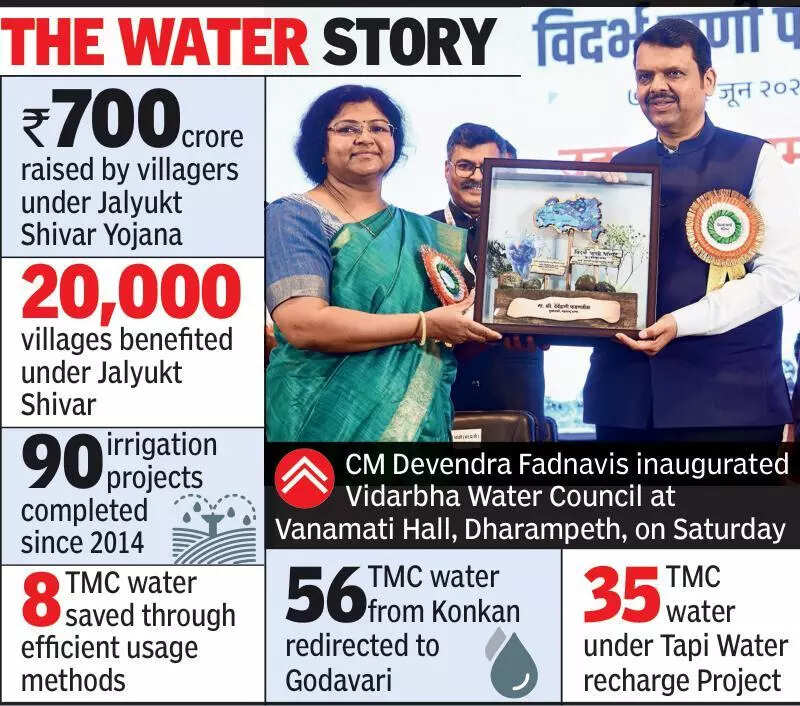Nagpur: Maharashtra’s deep regional water disparities persist despite hosting some of India’s largest irrigation projects, said chief minister Devendra Fadnavis at the Vidarbha Pani Parishad. “Big dams alone can’t resolve the issue. The real solution lies in small, sustainable conservation structures,” he stated, advocating for localised water planning.He highlighted the success of Jalyukt Shivar under the Baliraja Project, which ensured convergence of departments under district collectors, boosting participation and impact.Fadnavis also backed the Centre’s move to suspend the Indus Water Treaty, calling it the “deadliest blow” to Pakistan and a precursor to “Operation Sindoor”. He warned that water wars are no longer distant possibilities, urging wise use and conservation amid mounting national and global water stress.“Water has been at the heart of civilisations — from the Saraswati to Sindhu to African rivers,” said Fadnavis, adding that in modern times, unchecked use, especially in agriculture, has become a major concern. “Whenever water availability rises, we shift to cash crops and overuse it. We must act wisely in usage and conservation.”Speaking about Jalyukt Shivar, he said, “Unlike earlier fragmented schemes split across 14 departments, this one was coordinated under district collectors. All officials, irrespective of departments, reported directly to the collector. This streamlined planning, execution, and participation.”With Rs700 crore raised through public contribution, the scheme benefited over 20,000 villages, notably in Marathwada, improving groundwater levels. A 2018 HC petition led to an expert panel, which verified the scheme’s success. In 2020, the Centre’s Groundwater Report confirmed Maharashtra as the only state with consecutive annual water level rises. “Even with just 75% rainfall, we faced no scarcity,” he said.Among key projects, Fadnavis cited the Wainganga-Nalganga river-linking initiative — a 500km project spanning seven districts in Vidarbha — aimed at redirecting surplus water toward the Godavari basin. Similar efforts include five other river-linking schemes and the Tapi Water Recharge Project, set to shift 35 TMC water to saline-affected areas.Since 2014, the state has completed 90 irrigation projects, including the near-completion Gosikhurd Dam. Post-2017, it has shifted to piped distribution systems, saving 8 TMC of water and boosting efficiency. Fadnavis also praised Israel’s water practices, such as micronutrient delivery and precision irrigation, as models being adopted in Maharashtra.He flagged river and nullah pollution, attributing 90% of it to untreated domestic waste. “Industries get blamed, but citizens are major contributors,” he said, urging better sewage systems in cities like Nagpur, Pune, and Mumbai.Warning of rising inter-district water conflicts like Nashik vs Marathwada, Fadnavis stressed that solutions, not demands, are the way forward.Earlier, Nagpur University’s acting vice-chancellor Madhavi Khode Chaware inaugurated the Wainganga Water Exhibition at Vanamati. Over 150 students, scholars, and activists participated, showcasing posters, research papers, and models focused on water conservation and sustainability.(Inputs by Krisha Panchmatia)


